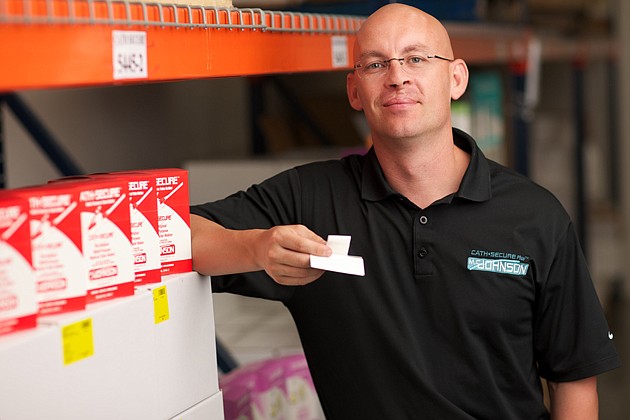- November 25, 2024
-
-
Loading

Loading

If a business opportunity presented itself so you could double the size of your company overnight, could you handle it?
Matthew LeLievre helped Bonita Bay Group manage stunning growth when he was a network engineer for the residential developer during the boom years. He left Bonita Bay Group in 2006 at the height of the residential bubble to join his family-owned medical manufacturing company called M.C. Johnson Co.
The experience with Bonita Bay served him well. To position M.C. Johnson for growth, LeLievre used his background as a technology expert to build computer systems for marketing, quality control, staff training and logistics.
So when medical giant Covidien came calling in 2010, LeLievre and 10 employees at M.C. Johnson were ready to supply it with the catheter holders it makes. Overnight, revenues and sales doubled, LeLievre says (he declines to cite specific figures).
“It was an infrastructure overhaul,” says LeLievre, 35, M.C. Johnson's president and co-owner. “My goal was to ramp up the company to receive opportunities.”
M.C. Johnson had developed a reputation for making special adhesive bandages that hold catheters and other medical tubes securely on a patient. LeLievre's mother-in-law took over the business from close friend and founder Melissa Johnson, a nurse who died in 1993 after having invented the product in 1979.
The company had grown steadily over the years, sticking to its niche of catheter-securing adhesive bandages. Because it did this so well, few competitors challenged its position.
But when LeLievre joined the company in 2006, he recognized the company needed to invest in technology so it could ramp up production if needed. “They needed young blood,” he says.
For example, he implemented a quality control system that allowed the company to earn ISO certification, an arduous and demanding process that assures high manufacturing standards to customers. “It allows us to play with the big boys,” LeLievre says.
To accomplish that, he had to establish staff and customer training programs, logistics software, disaster recovery policies and software to develop new products. While that seems excessively bureaucratic for a small company, LeLievre says the result is that M.C. Johnson can produce a new product in a matter of months. M.C. Johnson contracts with a manufacturer in Knoxville, Tenn., that employs 120 people, giving it flexibility to adjust to market demands. “We don't have any red tape,” he says.
By 2010, with its systems in place, LeLievre got a phone call from Covidien, a $12 billion company that supplies health care facilities with equipment doctors and nurses need. LeLievre hadn't pitched them the business, but he was ready. “They called us up,” he says.
Covidien sells a tray for catheter insertion that includes everything a nurse might need for that procedure, but it didn't have an adhesive bandage that would hold the catheter in place. So Covidien turned to M.C. Johnson.
What's more, M.C. Johnson is ready for any additional opportunities that might come its way. “We've got great relationships with the industry,” he says.